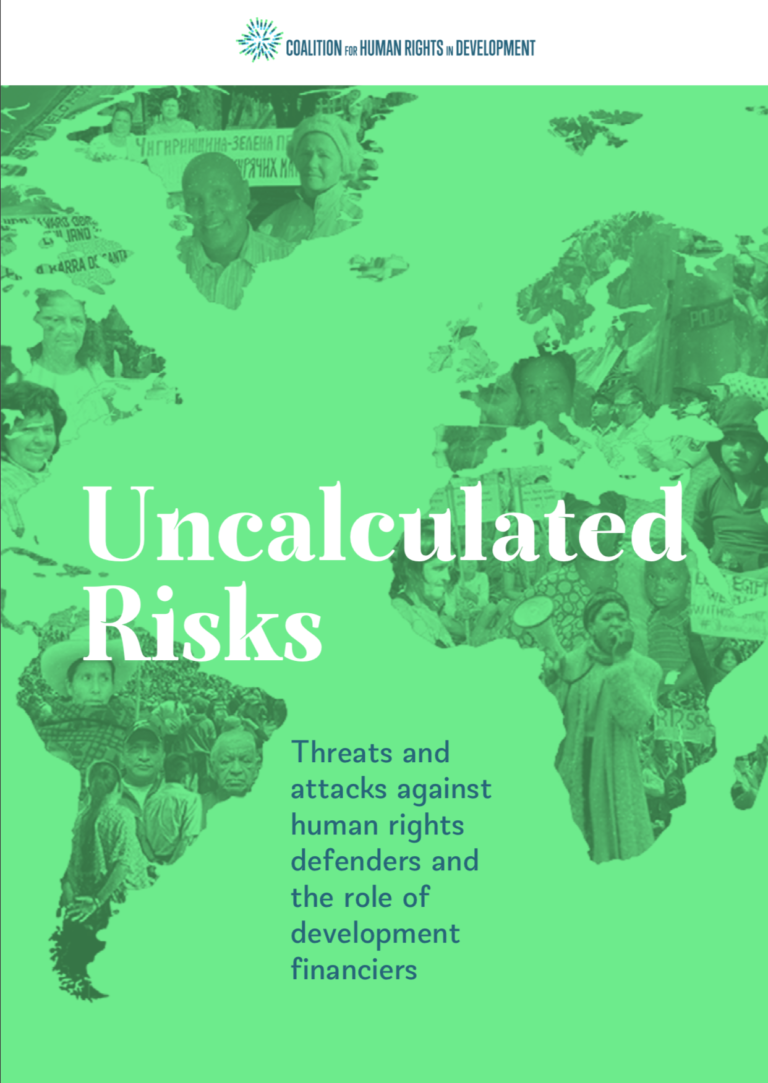Inclusive and sustainable development requires an environment where all people are free to express their views, to exercise their rights, and to fully participate in the decisions impacting their lives and their communities. Every day, indigenous peoples, communities, social movements, journalists, and individuals are doing essential work protecting their lands and resources from destruction, fighting for equal access to housing and education, exposing corruption and abuse of power, and advocating for investments that reach the poor. Yet today these human rights defenders are increasingly subjected to threats and attacks for their efforts, including harassment, physical violence, criminalization, arbitrary detention, and killing. What’s more, these threats and attacks are increasingly taking place in the context of activities undertaken in the name of development.
Through 25 case studies, Uncalculated Risks explores the nature of the threats and attacks against defenders in development, and examines the role of development finance institutions (DFIs) in mitigating or exacerbating these risks.

